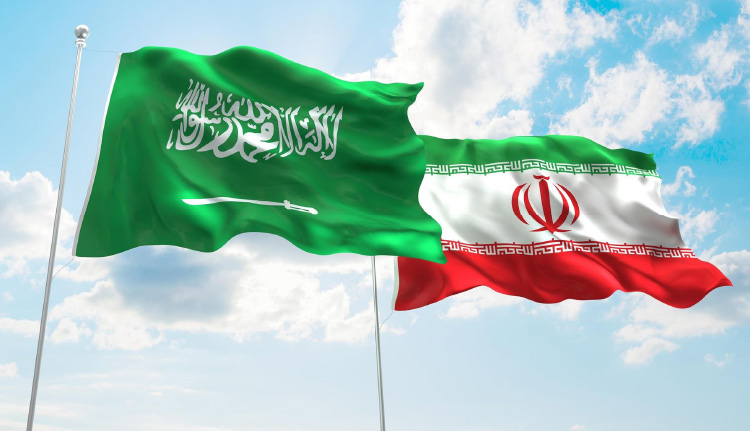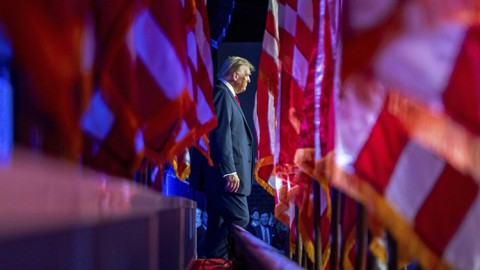After years of tension that involved suspected attacks and proxy wars in several parts of the region, the archrivals, Saudi Arabia and Iran, decided to reestablish diplomatic relations. The China-brokered Saudi-Iran rapprochement is seen as a major diplomatic breakthrough that may alter the regional geopolitical scene.
The agreement, signed by Saudi Arabia and Iran in Beijing, was described as a major victory for China, which emerges for the first time as an influential mediator in this region. It is also seen as another setback for the United States, which sees its role and influence in the Middle East diminishing.
Some experts are still cautious not to exaggerate their optimism while predicting the impact of this rapprochement between the Saudi Kingdom and the Islamic Republic on the conflicts in Yemen, Lebanon, Iraq, and Syria. They also wonder: how can better relations between the two giant energy producers affect energy markets and OPEC policies?
A Window for Peace
Saudi Arabia and Iran have been locked in a fierce struggle for regional dominance.
Their rivalry is aggravated by religious differences as Iran is largely Shia Muslim, while Saudi Arabia is a leading Sunni Muslim power.
After the Iranian Revolution in 1979, relations deteriorated as Saudi Arabia was alarmed by Iran’s tendency to export its model beyond its own borders.
As uprisings across the Arab world in 2011 caused political instability throughout the region, Iran seemed more determined to establish itself or its proxies across the region and achieve control of a land corridor stretching from Iran to the Mediterranean.
Iran and Saudi Arabia were not directly fighting, but they are engaged in a variety of proxy wars around the region. In Yemen, Iran backed Houthi rebels who seized control of the capital in 2014, prompting a Saudi-led intervention the following year and fighting that has left hundreds of thousands dead and caused one of the world’s worst humanitarian crises.
In the Syrian civil war, Iran supported the Syrian regime with military and financial aid, while Saudi Arabia was a major supporter of rebel groups. Iran and Saudi Arabia also have competing interests in Lebanon, Iraq, and Bahrain where they supported opposite factions.
The news about the rapprochement between the two archrivals sent waves of optimism about the easing of conflict in these countries. Under the deal, both countries would restore agreements related to security, trade, and culture. They also agree to respect the other’s sovereignty and to not interfere in the internal affairs of the other.
Many experts predict that easing tensions between Riyadh and Tehran could see the two push for political reconciliation in Lebanon, make it more palatable for Riyadh to interact with the Assad regime in Syria, and may provide a boost in efforts to end the conflict in Yemen.
However, some experts believe that the reconciliation between Riyadh and Tehran is no “magic wand” for conflicts in these countries, as there are no easy solutions for these complex conflicts.
Some White House officials have shown skepticism about China’s ability, and desire, to play a role in resolving some of the region’s most difficult crises, including the long, disastrous proxy war in Yemen.
Growing Role For China
However, the landmark deal is seen as a diplomatic victory for China in a region where geopolitics has been dominated by the US for a long time. It comes at the same time China proposes an initiative to end Russia’s war in Ukraine.
The deal also comes at a time when relations between the US and China have become highly contentious over issues ranging from trade to espionage and increasingly the two powers compete for influence in parts of the world far from their own borders.
It also comes as Iran accelerates its nuclear program after two years of failed U.S. attempts to revive a 2015 deal that aimed to stop Tehran from producing a nuclear bomb. Hence, came the interpretation by some experts who see the deal as a slap at the Biden administration and as evidence that China is the rising power.
The White House downplayed China’s involvement, saying that internal and external pressure, including effective Saudi deterrence against attacks from Iran or its proxies, ultimately brought Tehran to the table.
However, there is a growing concern in the US about China’s motives. According to news reports, Republican Representative Michael McCaul, chairman of the US House of Representatives Foreign Affairs Committee, rejected China’s portrayal of itself as a peace broker, saying it “is not a responsible stakeholder and cannot be trusted as a fair or impartial mediator.”
Meanwhile, White House spokesperson John Kirby said the US was closely monitoring Beijing’s behavior in the Middle East and elsewhere. “As for Chinese influence there or in Africa or Latin America, it’s not like we have blinders on,” he said. “We certainly continue to watch China as they try to gain influence and footholds elsewhere around the world in their own selfish interests.”
Still, Beijing’s involvement adds to a perception of growing Chinese power and influence and shrinking US global presence.
Saudi-Iranian Friendship Energy Effect
One of the most important gains Gulf countries can achieve after the Saudi-Iranian deal is lowering the risk of attacks on energy facilities and shipping vessels. Hence, it can be seen as an advantage for crude oil importers and exporters in the Middle East and could stabilize the global oil market.
Experts believe that Iran-Saudi cooperation can also play a significant role in the decision-making process of OPEC, and prompt some regional countries that follow the policies of Saudi Arabia to restore their relations with Iran.
Saudi Aramco CEO Amin Nasser showed optimism, indicating that improving bilateral Iran-Saudi relations will have a positive impact on global oil markets, as the Iranian Oil Ministry has issued a statement saying that it would welcome any offer for foreign investment in its oil and gas projects.
Without naming any country or company, the Oil Ministry said any offer for investment in Iranian oil and gas projects, especially from members of the OPEC+ alliance of oil-producing nations, would be welcome in Tehran.
Saudi Arabia is the largest oil exporter in the world and a leading member in the OPEC+ grouping, which consists of the Organization of Petroleum Exporting Countries (OPEC) and allies like Russia.
Iran is the third largest natural gas producer and still a key supplier of crude oil to Asian markets despite being subject to sanctions imposed by the US since 2018.
However, one of the expected essential effects is the one concerning China, which is nearer than ever to achieving another geopolitical advantage by convincing Saudi Arabia to accept the petro-yuan for payment for its crude oil exports to China. This will be another blow to the US and the petrodollar.







